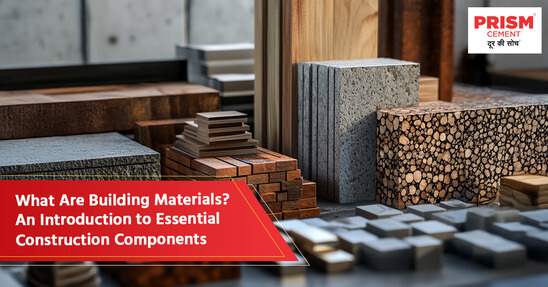
Building materials are the fundamental components used in construction to create structures, both residential and commercial. These construction materials provide the framework, envelope and finishes, that define a building's form and function. From the foundation to the roof, every element of a building relies on construction materials that ensure its safety, durability and aesthetic appeal.
The selection of right building materials is a critical decision that can significantly impact the overall quality, cost and longevity of a construction project. Several factors influence the choice of materials, such as:
Building materials can be broadly categorized into several types. To understand what building materials are, it helps to examine some common types:
The selection of building materials should consider the following factors to meet the project’s need:
When selecting cement for construction and other essential building materials, understanding their properties is crucial:
With sustainability in mind, the following construction materials are commonly used:
Innovative construction materials are redefining what construction materials are today:
By understanding what building materials are and their applications, construction professionals can make informed decisions to ensure the safety, durability and sustainability of their projects. Builders who choose cement and other carefully selected construction materials can create structures that are aesthetically pleasing and environmental-friendly.
Prism Cement offers a wide range of high-quality building – especially cement – products tailored to meet the specific needs of residential and commercial projects. Our commitment to quality and sustainability ensures that our products deliver exceptional performance and contribute to greener buildings.
Prism Champion Cement
Prism Champion Plus Cement
Prism Champion Duratech Cement
Prism Champion All Weather Cement
Experience the difference in your next project and build with confidence using Prism’s superior PPC cement options.
Prism Cement a division of Prism Johnson Limited is one of India’s leading integrated Building Materials Company, with a wide range of products from cement, ready-mixed concrete, tiles and bath products.
Prism Johnson Limited is an IMS Certified Company (ISO 9001:2015, ISO 14001:2015, ISO 45001:2018,SA 8000:2014 & ISO 50001:2018). Quality assurance is an integral part of Prism Johnson Limited manufacturing philosophy. The strength and other characteristics are much higher than the BIS requirements. Excellent quality has placed Prism Cement in the premium price segment.
KNOW MORE305, Laxmi Niwas Apartments, Ameerpet,
Hyderabad - 500016, Andhra Pradesh
![]() Tel: +91-40-23400218
Tel: +91-40-23400218
![]() Fax: + 91-40-23402249
Fax: + 91-40-23402249
"Rahejas", Main Avenue, V.P. Road,
Santacruz (W), Mumbai - 400054,
Maharashtra
![]() Tel: +91-40-23400218
Tel: +91-40-23400218
![]() Fax: + 91-40-23402249
Fax: + 91-40-23402249